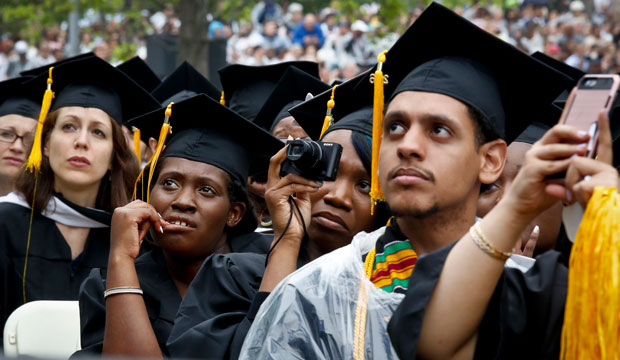Many black students face various barriers that are causing a decline in their enrollment in colleges and universities across the country, a student’s research has found.
According to a research conducted by University of Kansas doctoral student Bryon Keefe Williams, black students are most affected by low socioeconomic and first-generation college status.
Furthermore, black students are more likely to attend poorly-funded urban schools that have higher poverty rates, overworked teachers and counselors, acting as a roadblock preventing students from attending college.
The unaffordable process of applying to both college and financial aid is also leading to the underrepresentation of black students in higher education.
“I think we also need to have conversations about how we can standardize some of the processes so people can apply to any institution for financial aid or admissions in the same ways,” Williams said.
Williams’ research attributed low-test scores received by black students in comparison to their white counterparts to a lack of access to test preparation materials and lack of understanding of test importance.
Additionally, he found that various policies such as Common Core Standards have left some populations at a disadvantage, with schools and families not knowing if there is state support to implement the curricula.
Based on his research, Williams has called on institutions, particularly those in geographical proximity, to reach out to communities, schools and parents to boost diverse enrollment and to help address barriers facing black student populations. He also advocated for federal funding of programs such as TRIO, a federal outreach and student services program.
Support for Black Students in Public Colleges Diminishes [Study]

